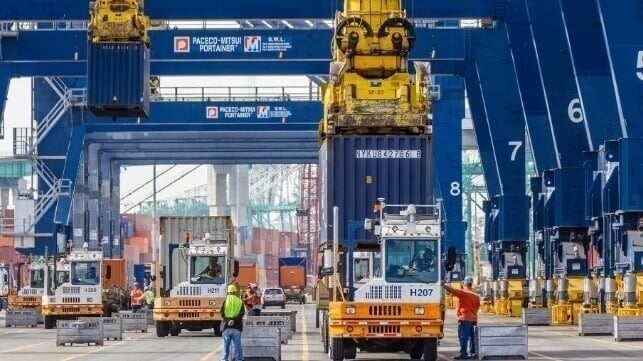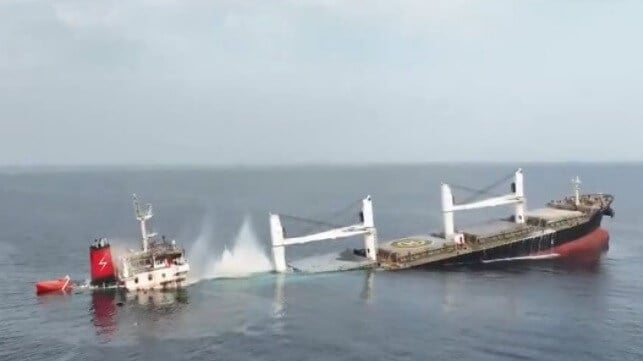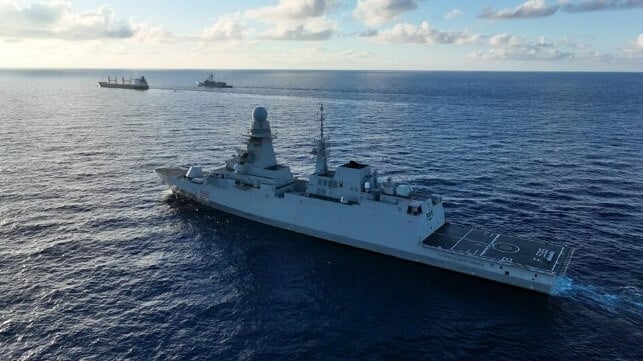SHIPOWNERS WARNED GPS SPOOFING GROUNDINGS MAY NOT BE COVERED BY INSURANCE - SPLASH247
The Association of Average Adjusters (AAA) has issued a warning to the maritime sector, highlighting the growing legal ambiguity around insurance claims involving vessel groundings linked to GPS spoofing. In a new discussion paper, the AAA warns that cyber exclusion clauses increasingly found in hull & machinery (H&M) policies—most notably the LMA5403 clause—could leave shipowners …

The Association of Average Adjusters (AAA) has issued a warning to the maritime sector, highlighting the growing legal ambiguity around insurance claims involving vessel groundings linked to GPS spoofing.
In a new discussion paper, the AAA warns that cyber exclusion clauses increasingly found in hull & machinery (H&M) policies—most notably the LMA5403 clause—could leave shipowners exposed in the event of a casualty where GPS spoofing is involved.
“GPS spoofing is where false positioning signals mislead a vessel’s navigation systems giving misreported positions which have the potential to cause a grounding,” Chris Kilbee, chair of the AAA explained: “A vessel grounding caused, or contributed to, by GPS spoofing would normally be covered under a traditional hull & machinery insurance policy but the increasing inclusion of cyber-exclusion clauses has now muddied the waters.”
Under traditional H&M policies, a grounding—even where navigational negligence plays a role—is considered a peril of the sea and typically covered. However, in recent years, cyber exclusions like LMA5403 have raised serious questions about what’s actually recoverable when electronic interference, such as spoofing, plays a part.
The LMA5403 clause excludes losses “directly or indirectly caused by or contributed to, by or arising from the use or operation, as a means for inflicting harm, of any computer or electronic system.”
“The additional difficulty in determining whether spoofing was intended to cause harm potentially means that insurers face a much higher bar in evidencing that harm was intended by the spoofing actor. This introduces a significant grey area in claims assessment, where causation, crew conduct, and cyber attribution intersect,” Kilbee said.
The AAA’s paper stresses that intent, attribution, and causality are now central to claims resolution. If insurers cannot prove that a spoofing event was done with malicious intent, they may struggle to deny coverage—but if intent is demonstrated, shipowners could face the unpleasant surprise of a denied claim.
One option increasingly considered by owners is the use of cyber buy-back clauses, which allow for the reinstatement of coverage in spoofing-related incidents—for an additional premium. The AAA has urged shipowners and brokers to scrutinise policy wordings and consider these endorsements, particularly when operating in high-risk regions where spoofing is known to occur.
Splash has reported on rising cases of GPS spoofing throughout the 2020s, something that has evolved from a niche cyber nuisance to a real navigational hazard, with hotspots in the Red Sea, Black Sea, Persian Gulf, and the South China Sea.
In July 2024, the help desk at sat comms specialist Marlink typically received one call every two weeks from clients concerned that their GPS was unavailable. By mid-July 2025 it received separate reports from more than 150 vessels in a single day.
Two tankers suffered a fiery collision south of the Strait of Hormuz in June (pictured above) following extensive GPS spoofing, while the 7,000 teu MSC Antonia ran aground off Jeddah in May as a result of GPS spoofing, the ship subsequently appearing on various vessel tracking services hard aground in the desert on another continent (pictured below).
Sam Chambers





